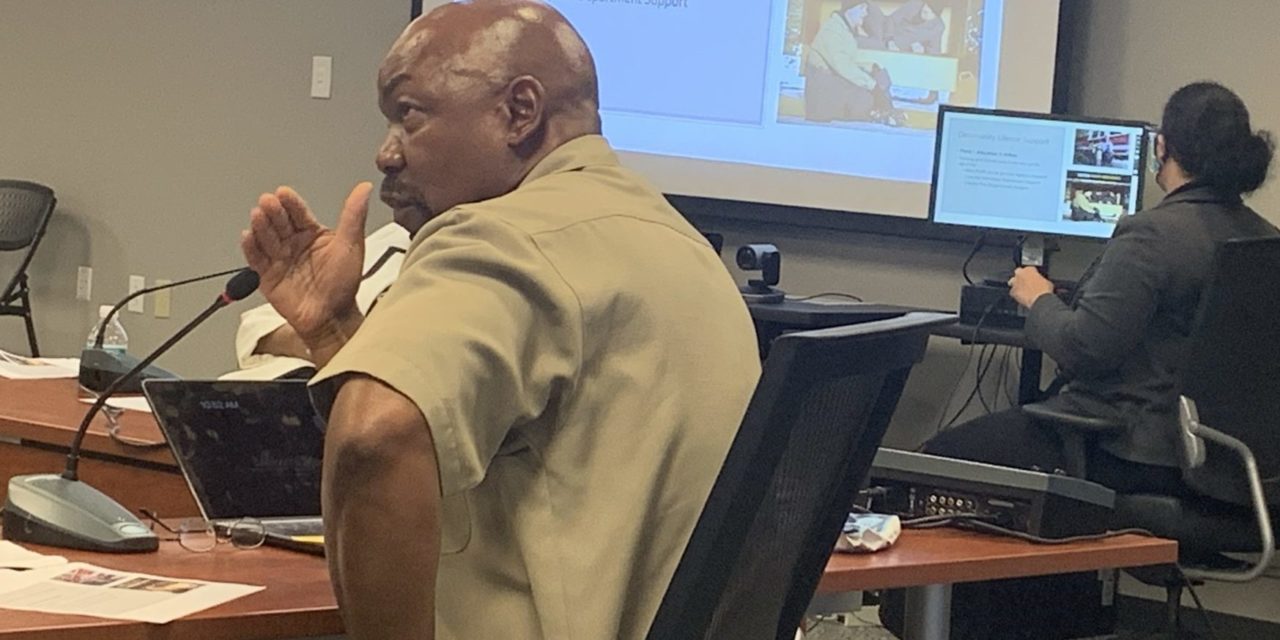When Guilford County Chairman of the Board of Commissioners Skip Alston met virtually with the mayors and other leaders of the county’s cities and towns earlier this month, that meeting was closed to the public and media.
However, a memo sent from Alston to the other 10 county commissioners after the meeting summarizes the major points of discussion.
“I wanted to provide you with an update on our ongoing coordination efforts under our One Guilford initiative,” Alston wrote to the other commissioners. “Many of you were able to participate in our initial March 1 Mayors’ meeting, which was a great kick-off to a more strategic and collaborative approach to utilizing our American Rescue Plan funding.”
That’s a reference to over $100 million in federal COVID-19 relief funding that Guilford County is receiving – as well as tens of millions more that’s going directly to the towns and cities in the county.
Alston noted in the memo that Guilford County Manager Mike Halford has worked closely with town administrators in recent weeks to identify “community needs and high priority projects” that would help create a stronger infrastructure and increase the county’s resilience during future pandemics or other times of crisis.
“I have asked that each of the towns work with their respective boards to finalize a list of projects that we as a Board of Commissioners can consider supporting,” he wrote. “Several of our small towns are already working on collaborative projects for us to consider. Our staff have offered to provide technical support for those towns that need additional resources to help vet or prepare projects that conform to the Recovery Act guidelines.”
Those guidelines are much broader than the guidelines for federal COVID-19 relief funding provided last year and include many none COVID related projects.
Alston wrote that during the meeting with the mayors – and, in some cases, top staff if the mayor wasn’t able to take part – it was clear that water and sewer infrastructure, as well as broadband internet expansion, were a high priority in the smaller towns.
“The COVID-19 pandemic has made it very clear that we continue to have shortfalls in equal access to connectivity in Guilford County,” the chairman wrote. “The detailed assessment will help move us forward quickly.”
Alston said the mayors shared several recommendations meant to improve economic development and tourism in their parts of the county. He also said there was a clear call for more support services for the county’s aging population. He noted in the memo that two needs expressed were for senior centers and coordinated transportation services.
Alston told the Rhino Times that he plans to hold another meeting with the mayors soon and he added that that meeting will include all of the county commissioners and will be open to the public.


What are The Recovery Act Guidelines? There are 400 utilities in North Caroina in “distress” — people not paying utility bills and hard to pay for upkeep and that sounds like a need. Is the “Recovery Act” to bankroll developers? I hope not. Maybe need public input.
100 million dollars, closed meetings, Skip Alston… WHAT COULD GO WRONG??
Just look where he lives
Why is Skip Alston’s corruption something known to all and laughed at by all?
Are we to “lock-step” as one, as in national socialist Germany?